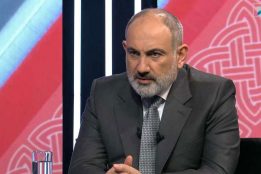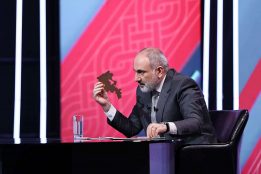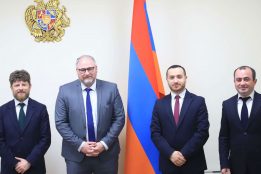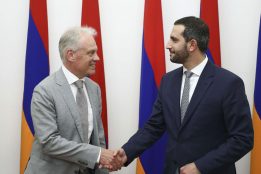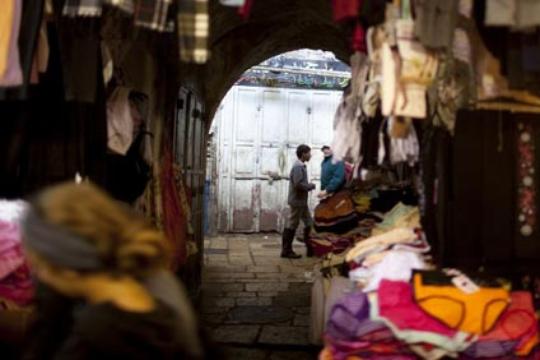
Robert Danin touched on Middle East developments in his recent interview to Council on Foreign Affairs. Find the full interview below.
Faced with the continuing deadlock in the Israeli-Palestinian situation, President Obama, early in his second term, should make his first visit as president to the two areas, says CFR Middle East expert Robert M. Danin. “The president could enhance America’s leverage and enhance his standing, which is quite low among the Israeli people [and in the Palestinian territories], by visiting Israel now, and by visiting Palestine as well,” he says. “That would help engender a sense of American commitment to a vision of two states.” However, he notes that any new efforts to settle the decades-long conflict by the Obama administration will be balanced with the fact there’s now “a wholly different region with wholly different priorities” than what they faced in 2009.
With the Palestinians seeking recognition as a UN observer state, an Israeli parliamentary election coming up in January in which Prime Minister Netanyahu is expected to prevail, and President Obama forming a new team for his second term, what should the United States be doing about unresolved Israeli-Palestinian issues?
The most immediate challenge is to create some space here in order to cool down passions and allow for a return to a constructive approach. Right now, the United States is in reactive mode. Events are being driven by this Palestinian effort, and it’s hard to see how that is going to enhance the prospects for negotiation, even though that’s what Palestinian President Abbas says. So the first challenge is to try to just do no harm, create space, because Abbas is going to the United Nations precisely at the time that President Obama is focusing on reconstituting his team and Israel is consumed with its elections. This creates a situation where neither the United States nor Israel is in a position right now to entertain a serious new approach.
What’s needed?
There needs to be some new consultations; the new American team has to be established; the Israeli elections have to be held. So we’re looking at February before any kind of real, major kind of initiative can be undertaken, if that’s what the parties want to do. In the first instance, we just need to create space for that to happen, and that means keeping tensions from flaring up. It’s very likely that a move by the Palestinians to gain new status is going to lead the Israelis to take harsh counteractions, and will also not engender goodwill with the new Obama team, which would like the Palestinians to hold off and give them some time to set a new agenda.
There was some concern for a while that the Palestinians were not getting the economic assistance they needed. Are they getting aid again?
No. The Palestinian Authority faces a severe finance crisis. American assistance has been withheld. Israel has periodically been withholding money. The Arab donors have not been following through on their pledges. So there’s a serious fiscal crisis taking place that has led to the failure of the Palestinian Authority to pay its salaries on time, and that undermines its standing among the Palestinian people.
Is Abbas’ effort to go to the UNGA a political decision to improve the morale of the Palestinian people?
I think he feels he needs to win. I think he feels he needs to demonstrate that the Palestinian Authority achieves things for the people. And if he’s not achieving material benefit and the payment of salaries, then he’s looking for a symbolic win, which is what makes getting him off this track all the more difficult.
How bad are relations between Israeli Prime Minister Benjamin Netanyahu and Obama? Netanyahu is favored to win reelection as prime minister.
What I would say is that both sides have made efforts recently to try to patch it up, and there’s an opportunity here for whatever differences that may exist to be at least managed. Now is the time for both leaders to try to reach a new understanding. The president could enhance America’s leverage and enhance his standing, which is quite low among the Israeli people, by visiting Israel now, and by visiting Palestine as well. That would help engender a sense of American commitment to a vision of two states. It would be wise for the president to go visit.
Going to Israel and the Palestinian territories would be very helpful. There is, right now, a real sense in the area that the United States is not interested, and there’s not a great deal of popularity for the president on either side. His visiting could really turn around perceptions about the president’s commitment to the two-state vision, and his commitment to the aspirations of both Israelis and Palestinians.
Would he have to make a major public peace proposal on specifics or just hold a general discussion?
Obama and his team need to calculate whether a visit should be part of a larger strategy, and what their objectives are. But in any case, whether it is crisis management or crisis resolution, a visit could be very constructive regardless of the objective, but it should be part of a strategy.
The Obama administration in January 2009 named George Mitchell as the Middle East negotiator to try and work out an Israeli-Palestinian agreement, but he resigned in frustration after two years with no agreement in sight. Is there any indication that the Obama administration has new thoughts on how to handle this situation?
Clearly, the administration shifted its approach from a very ambitious one of trying to get a deal very early on. There were leaks of reports, of statements made by White House officials at that time saying, “We’ll get a deal within two years,” so I think they came in quite confident that they could get a deal together very quickly. By 2011, President Obama outlined in his May speech at the State Department something far short of a comprehensive peace plan. He proposed an effort at a deal that would focus on borders and security, and deferred the other issues of Jerusalem’s status, the return of Palestinian refugees – the most contentious issues.
The administration lowered its approach to really trying to manage the conflict and not even pursue an agreement at that time. And of course, the key question that everyone’s asking is: Will newly reelected President Obama decide that he wants to make another serious run at this, or is he just going to try to manage it, having deemed it just too difficult, or not the right time for it, or that he just simply has other priorities? Keep in mind that the effort to settle Israeli-Palestinian issues was launched before the advent of the Arab Spring in 2011, so we’re looking at a wholly different region with wholly different priorities. We have a huge war taking place now in Syria; we have a nuclear crisis with Iran; so there are other issues on the regional agenda than just Israel-Palestine.
It is amazing to think that in 2009, the only real Middle East issue was the Israeli-Palestinian negotiations.
There’s a reason for this. I think the president calculated that he wanted to reconstitute America’s standing in the region, following the war in Iraq and the war on terror. And so he saw trying to forge Israeli-Palestinian peace as a part of that larger effort. What it did was it raised expectations and then frustrated people in the region – Arabs and Israelis alike – because they heard some very promising rhetoric but saw no real delivery. That was the part the administration didn’t quite understand – that as important as rhetoric is, without follow-up, it’s not going to buy you much goodwill.
Did Obama make a mistake, in retrospect, in not being more personally involved in the negotiations? I think back to 1978-79, where President Jimmy Carter was intimately involved, starting with mediating the Camp David talks with Egypt’s President Anwar Sadat and Israel’s Prime Minister Menachem Begin.
There were many mistakes made. There was a series of steps that were taken that were ill advised, frankly, and it just led to a failure.
In your previous job, you worked with Tony Blair, who is the Quartet’s [the United States, the European Union, Russia, and the United Nations] special negotiator. Is that process still alive?
Very much so. He’s still very active. In fact, he was just meeting with Israeli and Palestinian leaders the other day. His effort has been primarily focused on keeping the situation on the ground from deteriorating, on improving conditions so there’s Israeli-Palestinian cooperation. But in the absence of a political context, that effort is very difficult to sustain.

















